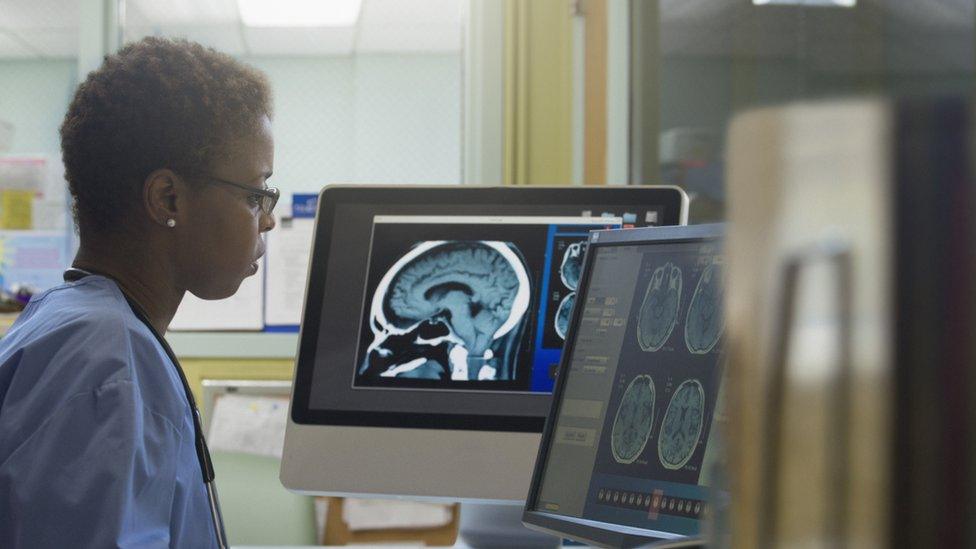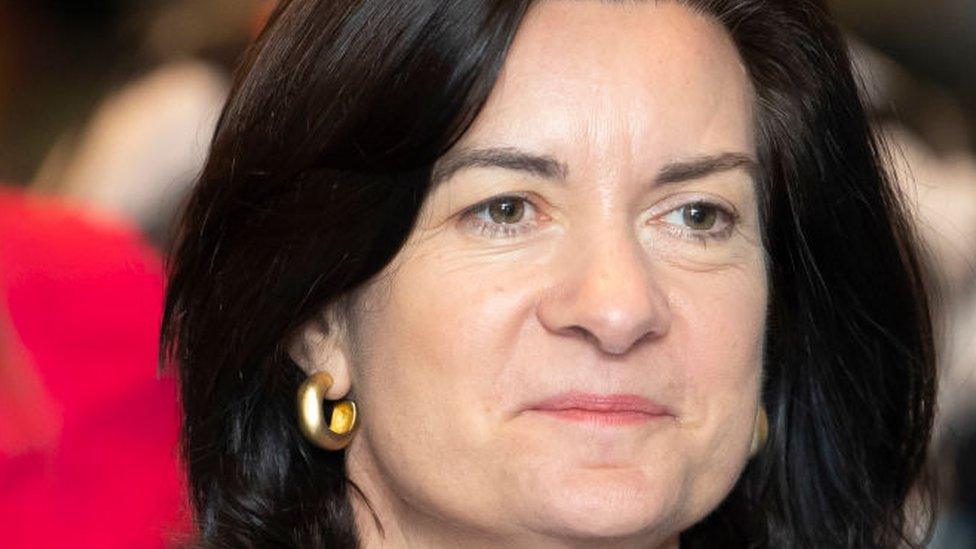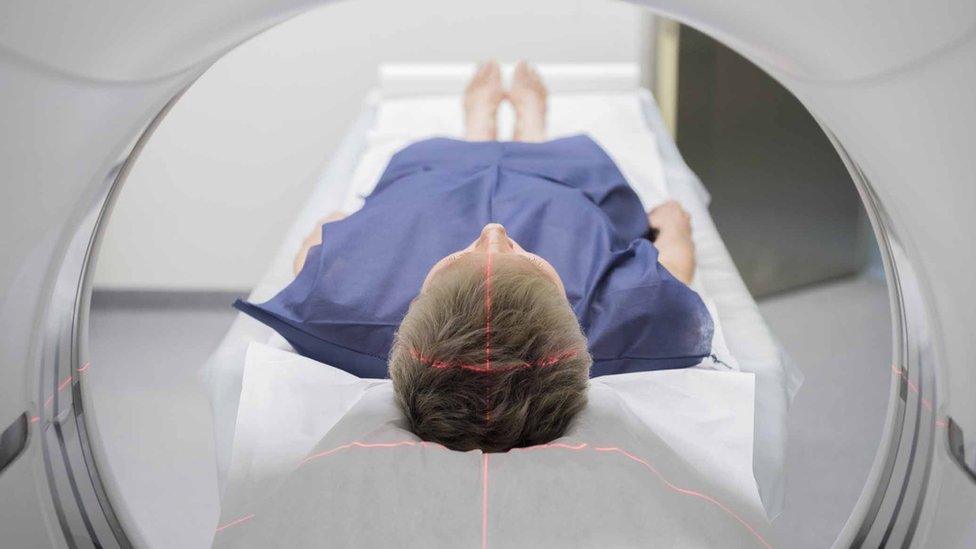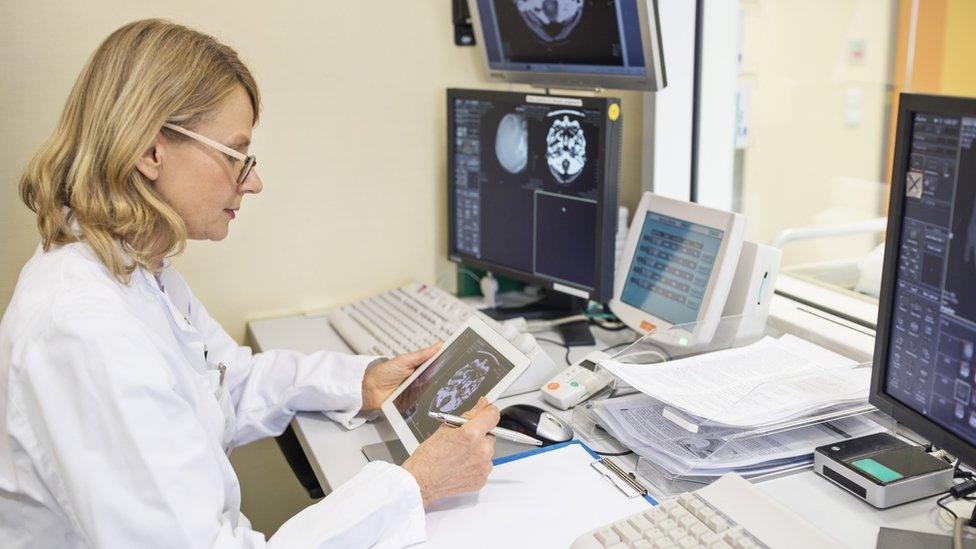NHS Wales: £260m funding for training healthcare staff
- Published

Wales is 38% short of the number of consultant radiologists needed to meet demand, the Royal College of Radiologists says
More than £260m of funding to train healthcare professionals in Wales has been announced.
The investment, for 2022-23, will go towards training for oncologists, anaesthetists and other departments such as intensive care.
The Welsh government said the funding was a 15% increase on the previous year.
Cancer support charity Macmillan said it welcomed the extra funding but more investment was needed.
Health Minister Eluned Morgan said training new staff would help clear the back log after the Covid-19 pandemic.
One area which will be receiving some of the funding is radiology, which involves doctors interpreting scans and X-rays which are vital in detecting and diagnosing cancer and other diseases.
The Royal College of Radiologists said Wales had 38% fewer consultants than needed to meet demand. It said this was the UK's worst shortage of radiologists.
Under the funding plan, 22 new radiologists would be trained in Wales.
Khattab Alkhedairy, a second year trainee radiologist, said there had been an "uptick" in the number of scans needed, which the workforce had struggled to keep up with.
He said: "Everything requires a scan these days, so radiology is involved in nearly every aspect of medicine and you're trying to figure out what is wrong with people.
"I think we are training more than ever but not been able to keep up with the number of scans which radiologist are needed to interpret."
Dr Christopher Goodwin, a consultant radiologist at the Princess of Wales Hospital in Bridgend, said more training was "essential" and radiology was "absolutely central to everything in a hospital".

Health Minister Eluned Morgan said the funding would help clear the backlog in the Welsh NHS
Ms Morgan said: "We are doubling of the number of people who are training as radiologists in Wales and that is a significant contribution to what we need to see in future and what we need to do to clear that very big back log that has developed during the pandemic."
The investment will also fund 111 more adult nursing training places, 73 mental health nurses and maintain the target of 160 new GPs per year.
Ms Morgan said: "It's clear NHS workers have been flat out for 18 months and what is important is we are able to back fill some of the roles to take off some of the pressure off those who have have been working so hard so we have people ready to go and work on our front line to clear that back log.
"We need to keep training and strengthening our workforce, so it is prepared for all future challenges it may face and improve resilience as we bid to recover from the effects of the pandemic."
Richard Pugh, of Macmillan Cancer Support in Wales, said: "Macmillan welcomes this workforce investment by the Welsh government, including funding for roles that help with cancer diagnosis, treatment and care.
"However, cancer services and the cancer care workforce in Wales are under more pressure than ever so, as well as the right level of workforce investment, Macmillan wants Wales to have a cancer workforce plan to make sure we have the right staff and resources to keep up with soaring demand.
"Our own research shows we need an 80% increase in cancer nurses in Wales by the end of the decade, which needs urgent focus and investment beyond what has been announced today."
Related topics
- Published3 June 2021

- Published28 April 2021
